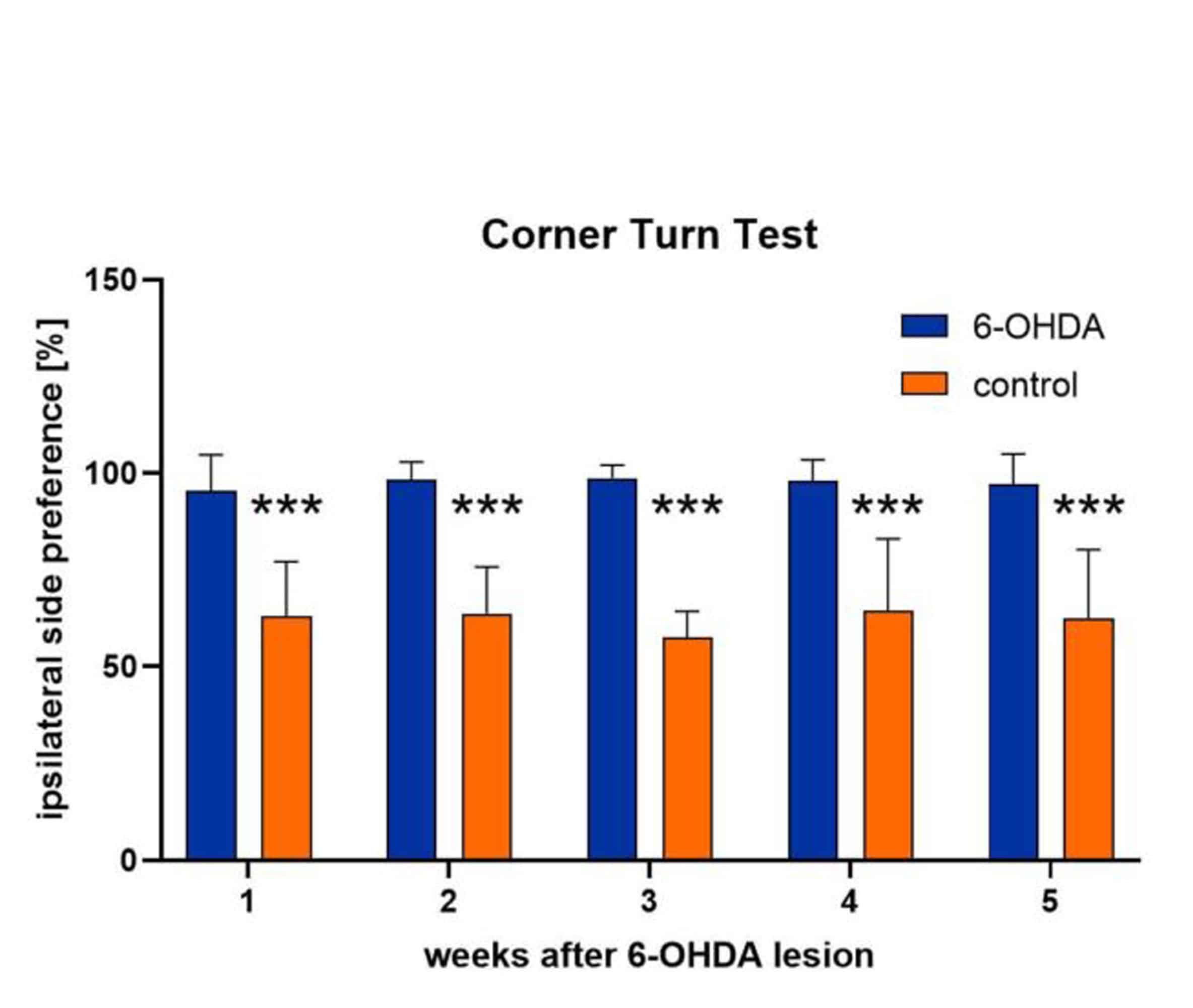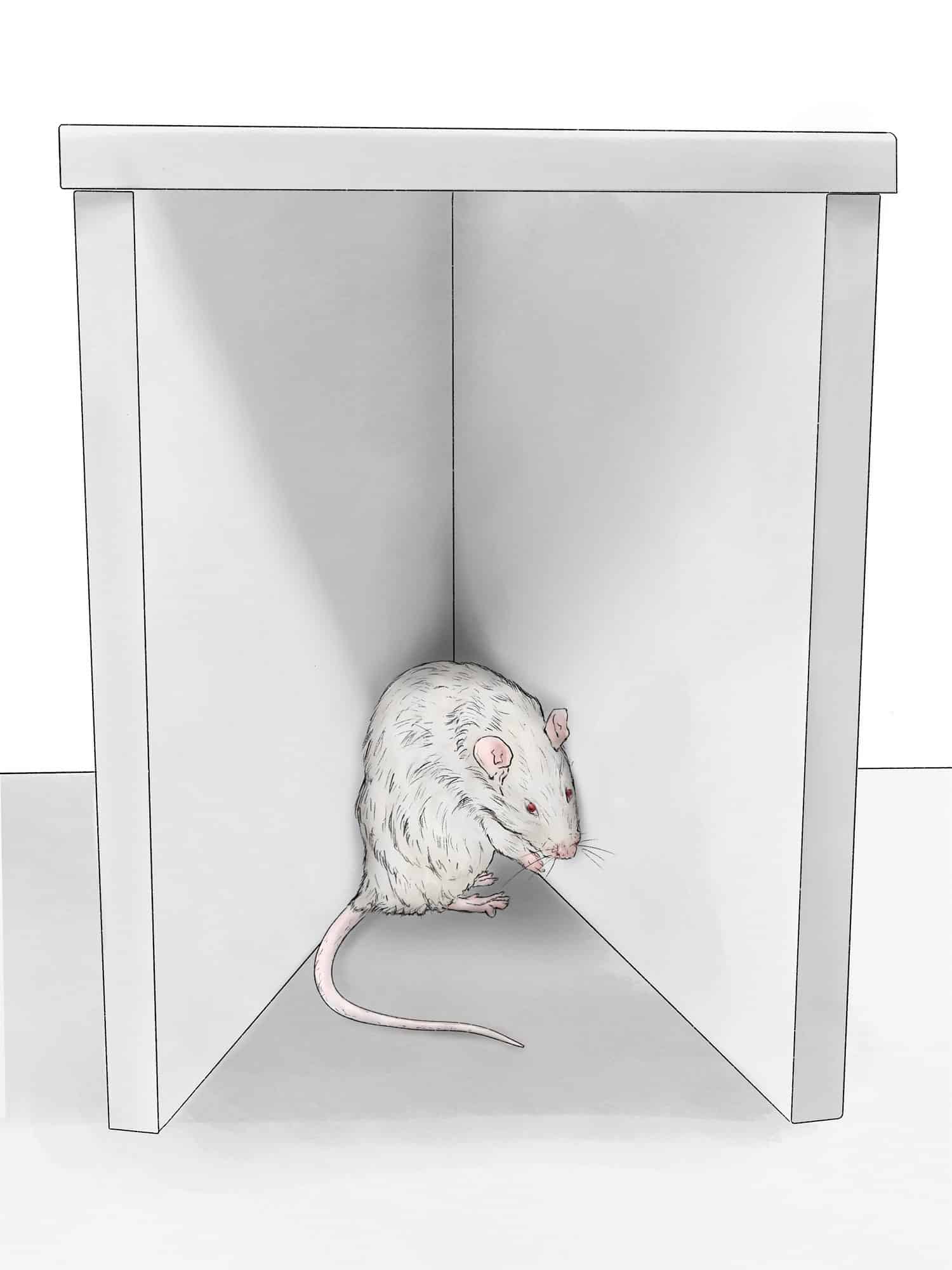The corner turn test is frequently used to evaluate sensorimotor impairments due to unilateral or asymmetric striatal damage. It allows quantification of the turning preference (left or right) upon approaching a corner. Animals with striatal lesion typically exhibit a turning asymmetry that is correlated to the extent of striatal injury. While healthy animals usually show an approximately equal number of right and left turns, impaired animals preferentially turn to the side that is ipsilateral to the lesion.
The corner test device consists of two walls with an opening on one side and a 30° angle on the other side. The open side is placed on the edge of the table, permitting exploration only towards the corner but not outside the device. After the animal approaches the narrow corner, it rears forward and upward, then turns back to face the open end. A total of 10 consecutive trials with approximately 30 seconds resting time in between are performed. The side to which the animal turns is recorded for each trial. Turning movements that are not part of a rearing movement are not scored.
There are several advantages of the corner turn test. First, it is simple to perform as it does not require pretraining. Next, there is no need for external re-enforcement of the exploratory behavior since rodents are curious by nature, allowing the assessment in a natural setting. Additionally, training does not affect performance which enables repeated testing of the same animals offering an advantage for substance testing in chronic disease models, such as Parkinson’s disease. Since this test is sensitive to asymmetric striatal damage, it is valuable in unilateral lesion models, e.g., the 6-OHDA model. In addition to the corner turn test, the cylinder test, corridor test, rotation test, and pasta gnawing test are helpful tools to evaluate unilateral striatal lesions.


Corner turn test 1 to 5 weeks after 6-OHDA or sham lesion in rats. Sham: n = 16, 6-OHDA: n=31. Two-way ANOVA followed by Bonferroni’s post hoc test; mean ± SEM; ***p<0.001.
